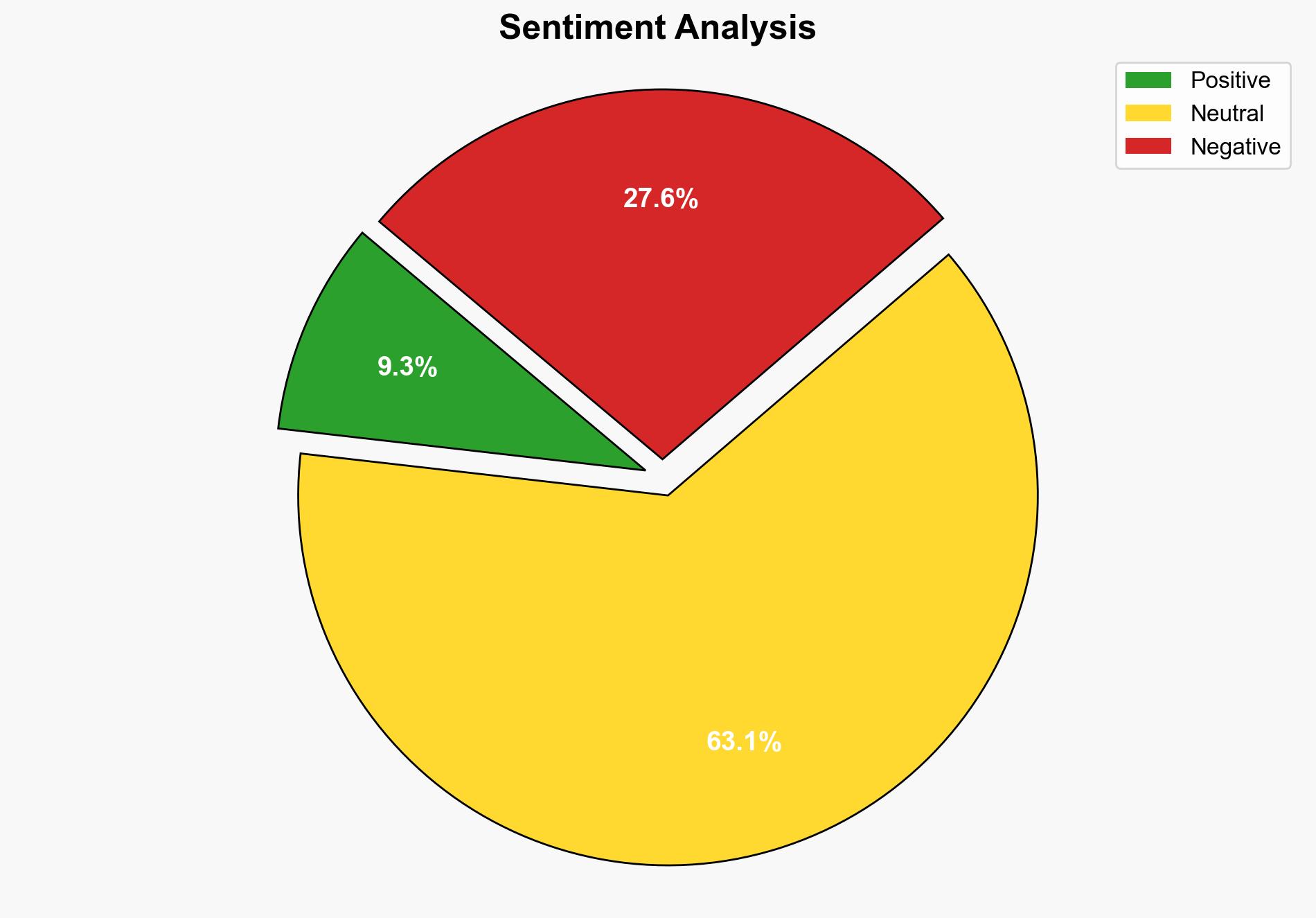Singapore says denial of aid in Gaza violates international humanitarian law – CNA
Published on: 2025-07-24
Intelligence Report: Singapore says denial of aid in Gaza violates international humanitarian law – CNA
1. BLUF (Bottom Line Up Front)
The most supported hypothesis is that Singapore’s statement is primarily a diplomatic effort to pressure Israel into complying with international humanitarian norms, with a moderate confidence level. The recommended action is to monitor regional diplomatic responses and potential shifts in international alliances, while preparing for possible humanitarian interventions.
2. Competing Hypotheses
1. **Diplomatic Pressure Hypothesis**: Singapore’s statement is a strategic move to exert diplomatic pressure on Israel to lift restrictions on humanitarian aid to Gaza, aligning with international norms and enhancing Singapore’s position as a proponent of international law.
2. **Domestic and International Image Management Hypothesis**: The statement is primarily aimed at bolstering Singapore’s international image and appeasing domestic and regional audiences concerned about humanitarian issues, with less emphasis on actual diplomatic pressure on Israel.
Using ACH 2.0, the diplomatic pressure hypothesis is better supported due to the explicit call for Israel to comply with international obligations and the alignment with statements from international bodies like the WHO.
3. Key Assumptions and Red Flags
– **Assumptions**: It is assumed that Singapore’s statement will have a tangible impact on Israel’s policies. It is also assumed that Singapore’s position is primarily driven by humanitarian concerns rather than geopolitical strategy.
– **Red Flags**: The lack of direct engagement or response from Israel could indicate that the statement may not influence Israeli policy. Additionally, the absence of specific measures or consequences for non-compliance raises questions about the statement’s effectiveness.
4. Implications and Strategic Risks
– **Geopolitical Implications**: Singapore’s stance may influence other countries in the region to adopt similar positions, potentially leading to increased diplomatic isolation for Israel.
– **Escalation Risks**: If humanitarian conditions worsen, there is a risk of increased regional instability and potential involvement of international humanitarian organizations, which could escalate tensions.
– **Economic and Cyber Risks**: Prolonged conflict may disrupt regional trade routes, and there is a potential for cyber-attacks as a form of asymmetric warfare.
5. Recommendations and Outlook
- Monitor diplomatic communications from other ASEAN countries to assess regional alignment with Singapore’s position.
- Prepare for potential humanitarian interventions by coordinating with international organizations for aid delivery.
- Scenario Projections:
- **Best Case**: Israel lifts restrictions, leading to improved humanitarian conditions and reduced tensions.
- **Worst Case**: Continued blockade leads to severe humanitarian crisis, prompting international intervention and increased conflict.
- **Most Likely**: Incremental easing of restrictions with ongoing diplomatic negotiations.
6. Key Individuals and Entities
– Lawrence Wong (Prime Minister of Singapore)
– Tedros Adhanom Ghebreyesus (WHO Chief)
– Singapore Ministry of Foreign Affairs
– Israel Government
– UNRWA (United Nations Relief and Works Agency)
7. Thematic Tags
national security threats, humanitarian intervention, diplomatic strategy, regional focus




